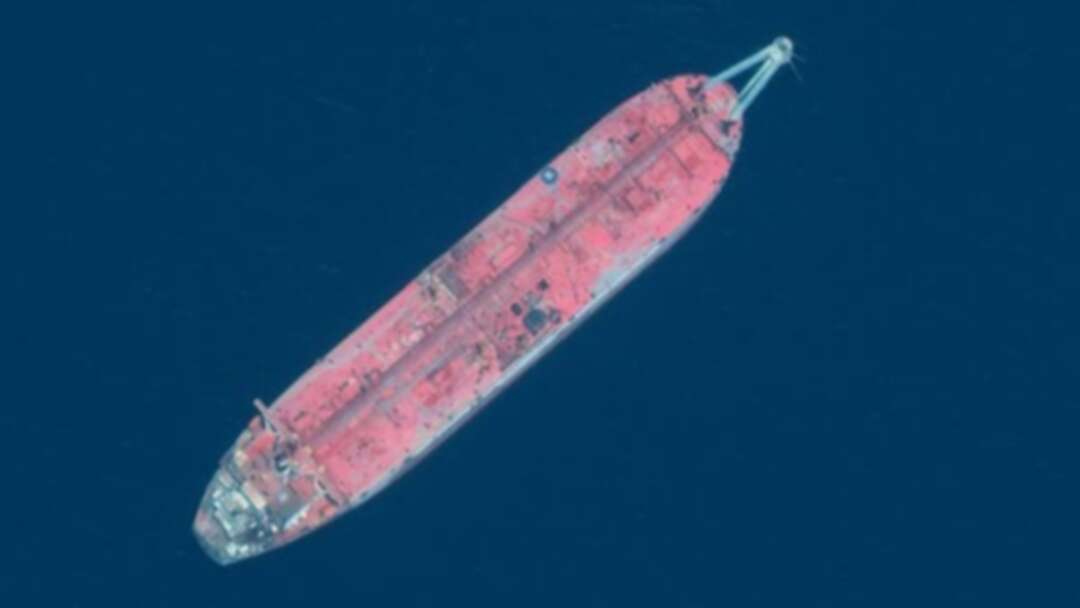-
UN inspections of oil tanker which may rupture off Yemen coast delayed until March

A UN mission to inspect a long-abandoned fuel tanker off the coast of Yemen, which threatens to rupture and cause a massive oil spill, has been pushed to March, the body said Wednesday.
"We've hit a few delays with international shipping that were beyond our control and had some back and forth on signing documents, which has now been resolved," UN spokesman Stephane Dujarric told reporters.
"For now, we think we can get there by early March. From our side we are doing everything possible to stick to that timeline and deploy the mission," he said.
In November, Yemen's Houthi rebels confirmed they had given the green light for a mission to assess the FSO Safer fuel tanker, which the UN initially planned for late January or early February.
The Iran-backed Houthis -- who control much of Yemen's north after a war that erupted in 2014 -- had previously denied access.
Sticking to the new timeline "will depend on continuous facilitation by the Ansar Allah authorities," Dujarric said, using the official name of the Huthi movement.
"We have communicated to the authorities our concern over several logistical issues that remain pending," he added. "We urgently need to resolve these issues in the next several days to avoid missing the window for timely deployment."
The UN's announcement comes just two days after new US President Joe Biden's administration suspended his country's designation of the Huthis as a terrorist group until February 26.
Dujarric said the UN was reviewing the situation concerning the US terrorist designation "to ensure that non-staff contractors are not inadvertently exposed to legal risks by participating in the mission."
Humanitarian groups argue that they have no alternative but to deal with the Huthis, who amount to a government in much of Yemen, including the capital Sanaa.
The 45-year-old fuel vessel, abandoned near the western port of Hodeida since 2015, has 1.1 million barrels of crude on board, and a rupture or explosion would have disastrous environmental and humanitarian consequences.
Apart from corrosion to the aging vessel, essential work to curb explosive gases in its storage tanks has been neglected.
source: AFP
Image source: Reuters
Levant
You May Also Like
Popular Posts
Caricature
BENEFIT Sponsors Gulf Uni...
- April 17, 2025
BENEFIT, the Kingdom’s innovator and leading company in Fintech and electronic financial transactions service, has announced its sponsorship of the “Innovation and Sustainable Technology Solutions Competition (GU - IST Solutions), hosted by Gulf University at its main campus.
This strategic sponsorship reflects BENEFIT’s active role in advancing technological innovation and fostering sustainable solutions to future challenges. It also seeks to empower Bahraini youth by enhancing their skills, capabilities, and competitiveness in innovation and solution development—contributing meaningfully to the broader goals of sustainable development across all sectors.
As part of BENEFIT’s active involvement in the competition, the company has announced that Hanan Abdulla Hasan, Senior Manager of Public Relations and Communication, will serve on the competition’s supervisory committee. Her upcoming participation reflects BENEFIT’s forward-looking commitment to championing academic and professional excellence.
Commenting on the occasion, Hanan Abdulla Hasan, Senior Manager of Public Relations and Communication at BENEFIT, said, “We are privileged to support this pioneering initiative, which aligns seamlessly with BENEFIT’s enduring commitment to fostering innovation and nurturing the potential of Bahrain’s youth. Our participation is rooted in a deep sense of social responsibility and a firm belief in the pivotal role of innovation in shaping a sustainable future. Through such platforms, we seek to empower the next generation with the knowledge, skills, and foresight required to develop impactful solutions that address future challenges, in line with the United Nations Sustainable Development Goals 2030.”
Dr. Aseel Al Ayash Dean of the College of Engineering in Gulf University commented, “We extend our sincere gratitude to BENEFIT for their generous sponsorship and support of the Innovation and Sustainable Technology Solutions Competition. This contribution plays an instrumental role in helping us achieve the strategic goals of this initiative, namely, cultivating a culture of innovation and sustainability, encouraging efforts that address the imperatives of sustainable development, and enhancing the practical and professional capabilities of our students and participants.”
The event will bring together a diverse spectrum of participants, including secondary school students, university undergraduates, engineers, industry professionals, entrepreneurs, academic researchers, and subject matter experts representing a wide range of disciplines.
The competition seeks to inspire participants to develop and present innovative, sustainable technologies aimed at addressing pressing environmental, social, and economic challenges. It encourages the formulation of business models that integrate advanced technological solutions with core principles of sustainability. Moreover, it serves as a platform for emerging leaders, entrepreneurs, and innovators to contribute to the advancement of the Sustainable Development Goals, promote the ethos of responsible technology, and demonstrate its transformative potential across various sectors.
Attendees will have the opportunity to view a series of project presentations submitted by participants, covering diverse areas such as eco-friendly product design, smart and sustainable innovations, renewable energy technologies, water conservation and management, waste minimisation and recycling, green architectural solutions, and sustainable transportation systems. Outstanding projects will be formally recognised and awarded at the conclusion of the event.
opinion
Report
ads
Newsletter
Subscribe to our mailing list to get the new updates!





















